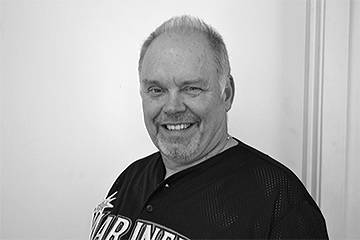MARYSVILLE – I have always respected law enforcement but even more so now that I have attended a Marysville Police Citizens Academy.
Over eight weeks about 25 of us learned what it is like to be a Marysville police officer. If you get a chance I would recommend you take part in one.
The biggest thing I learned was that things are not always what they seem. We were eyewitnesses to many different scenarios that police face all the time. Yet even with 25 witnesses, watching from many different angles, we did not see and hear everything that happened in almost every scenario.
Things happened so quickly we had a hard time noticing who shot first, how many shots were fired, etc. From one angle I didn’t even know that an officer had been shot.
I can only imagine how tough it is to actually know what’s happening in a stressful, real-life situation. I used to get enraged at police when I saw videos when it looked like police had mistreated a suspect. But now that I know better what we aren’t seeing, I will take those videos with a grain of salt. From a different angle, another video could show what looks like an entirely different event.
Police train to expect the unexpected. That is how they survive. They see what we don’t see because they prepare for everything that could potentially happen.
They are prepared to the point of being paranoid in self-preservation. They want to go home to their families first and foremost. They know that in a situation where they think they are least likely to be killed, that’s when it could happen. The only Marysville officer ever killed on duty, William “Don” Arndt, died that way.
The No. 1 goal of police is to get people to surrender peacefully. They are taught to keep their distance and to diffuse situations. They are taught hand-to-hand combat if attacked. But if someone is attacking them with a weapon, they are taught to protect themselves at all costs. With the invention of Tasers, they have one more non-lethal step they can take before shooting someone. But a Taser doesn’t always work if the person is big, wearing lots of clothes or on drugs or drunk.
We learned about lots of other things:
•SWAT team, which is getting a new vehicle soon, and crisis support, highly trained chaplains who support those who have lost loved ones, along with police and fire employees themselves.
•School resources officers who get to know students so they can diffuse situations before they start.
•K9 officers who are as effective as 20 humans when searching for a suspect or drugs. And the Marysville jail, which is bare bones.
•The need for tougher drunken-driving laws in this state.
•Criminal and traffic investigations and how it takes the human brain a second to react, even if someone is shooting at us. That’s why police often have their hand on their gun, just to reduce the reaction time. That is also why sometimes suspects are shot in the back by police. That’s because the suspect had already shot at the cop and turned to run before the officer was able to respond.
•Individual rights are more important in law than police rights. Police can’t use any more force than the criminal uses against them. If a suspect backs off on his or her use of force, the officer has to also. Police have to react, which leaves them vulnerable as the criminal always has a head start. So police use safety tactics, such as always looking for cover, when approaching suspects. •Police start building a case while it’s happening by yelling out things so witnesses can hear, such as put down that knife. We learned at their police academy officers spend 720 hours learning different aspects of law enforcement. We also learned about different crimes and what it takes to prove those crimes.
•Police are always playing the “what if” game, even when off-duty. “What if” something bad happens, how will I respond, they ask themselves, even at a public restaurant with their family. Cmdr. Mark Thomas said it best: “We treat people with kindness, dignity and respect. But we also have to have a plan to kill you. At the end of the day, our goal is to go home and see our family.”
Can’t blame them for that.
Think about all of those things the next time you read about a criminal trying to turn things around and become the victim in an altercation with police. Best to avoid those situations entirely, don’t you think?


